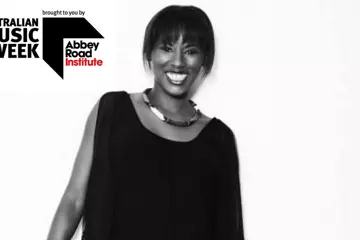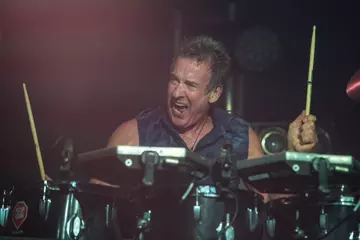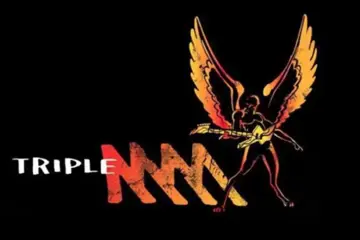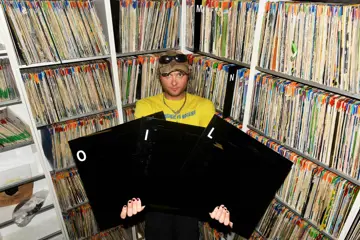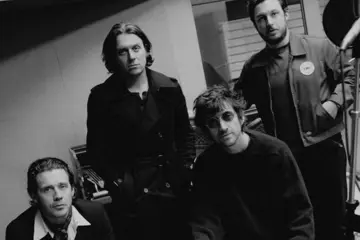It can be hard to cut through the noise as an artist in 2019, especially with a number of ongoing and arising challenges getting in the way.
As Adelaide-based music conference Indie-Con quickly approaches, we had some of this year’s speakers give us their insight into what challenges lie around the corner and how artists can succeed in 2019.
Marion Briand (YouTube Music)
The music industry has gone through a lot of changes since digital streaming became the leading way that music is consumed. Whether you’re a manager or a label, every role in the music industry has had to adjust to stay relevant and reach the right audiences. Artists need to surround themselves with a team that can take a broad perspective and promote their music to fans on a global stage.
Platforms and streaming services, like YouTube and YouTube Music, should be considered as part of an artist’s development. Both types of distribution are important to grow your fan base and achieve maximum visibility.
Understanding how to use each type of platform effectively is an enormous challenge. But for teams that embrace the new digital era, this may also be the biggest opportunity for the music industry.
Sarah Hamilton (Ditto Music)
Don't miss a beat with our FREE daily newsletter
There are some people in the music industry that are thinking short-term at the moment. Artists are blowing up quickly, and the streaming market can be based on singles, and it feels like people are all racing around, which I don't think is conducive to the creation of good work. I think it's important to look at the long game in the music industry, and focus on artists rather than songs. I would like artists to be supported, not only if they have a 'hit', but to be setup for a long-term career, so that they have the creative space and resources to make great music, and we as the industry support them.
Dom Alessio (SOUNDS AUSTRALIA)
Converting listeners into fans. There are more ways than ever for people to hear your songs, but how to engage them and turn them into fans of your music is a difficult challenge which is going to require some creative solutions.
Paige X. Cho (Bolster)
Without a doubt, the pressure from the NSW government is a huge issue for the entire Australian music industry. I love a good bit of Melbourne/Sydney rivalry but if one part of the ecosystem is affected, the rest of the system will feel that. The parliamentary enquiries around lock out laws and 'at risk' festivals are still happening and nothing is set in stone yet, but we're already seeing the cracks.
NSW represents a very large chunk of the music industry. Sydney promoters and festivals play a huge part in bringing world-class artists to our shores. While Melbourne is an equal player here, our festivals and events alone can't sustain tours from big artists without the added buying power from our sister city. Festival lineups (and ticket sales) across Australia will be affected and we'll see fewer big artists tour our shores. This means less work across all sectors, including production, media, PR, radio, venues, booking agents, managers and agencies like Bolster. This isn't just bad news for businesses and fans, but also local talent. A less vibrant music scene means less festivals and events for our local artists to perform at, less support slots and fewer opportunities. What happens to the NSW music scene over the next 12 months is monumental and could really hurt the Australian music ecosystem, so it's important that everyone rallies behind this.
Katie Wighton (All Our Exes Live In Texas)
I think there are two massive challenges the music industry is currently facing (though I don’t see them disappearing in the next twelve months). The first is sustainability - it’s very hard to be a working musician in this country. The second is sexism and misogyny in our industry. Things are changing, I know, but too slowly in my opinion.
Jason Fielding (Endeavor Global Marketing)
The biggest challenge is not taking advantage of the huge opportunity in Asia and artists not embracing mobile as their platform to reach fans.
Zoe Huang (Mega Stage)
While there are many challenges the industry is facing, put in a global context, from my perspective, THE challenge the industry must tackle over the following 12 months is how to take opportunities rising from new markets.
While the global industry is excited about these merging markets, it is way more painful to break in than it looked. I know this not only because, as an industry insider, I saw plenty of struggles between domestic music distributors/retailers and international labels/publishers, but also that, when I helped Chinese companies access the Indian market, so much effort to transplant to India what was successful in China went out fruitlessly.
Take China as an example. There is a language barrier, culture gap and content censorship, which made the conversation between local market and international music industry outrageously tough. People spend and save money in a way different than those in other places, which hinders the success of the subscription model. The generation born after 2000, the majority of internet users and music consumers, was raised up in an economic and social environment so different than older generations, which even made local companies with an average age of management between 30-40 difficult to understand the target population.
Let's further take into consideration that the development of local internet/mobile industry is in such a rapid and unique way. Most international digital platforms, including Google, YouTube, Twitter, etc. are not available there. The local digital services are all designed to cater to the unique local need. This requires all newcomers to commit tremendously to learn a whole new system.
Above being said, there are many international artists saw their success in China. Apart from those top-lined artists, some artists even managed to achieve greater popularity in China than in their home market. From Richard Clayderman and Kenny G of early years to the more recent duo Secret Garden, they all showcased how artists can find reach a brand new career peak in China.
At this very moment, the real question is how. To break down the question, we need to ask where the potential local audience is, how to engage local fans who speak a different language and how to turn fans' loyalty into revenue where free and legal music is available.
Stu Watters (Nightlife Music)
I think the biggest challenge for the music industry, and the indies more specifically, is being able to analyse the availability of data into something meaningful and useful so we take advantage of the opportunities as market aware businesses. It’s actually a really foggy landscape as we’re swimming in lines and lines of data and lack the tools to properly analyse it. There’s having the capability to be able to think ahead to create more interesting immersive experiences using technology that is still in an emerging state. It’s great the AR, VR, blockchaing and AI exist but there’s a very small fraction of labels in the market that have either the vision or capability to take advantage of it.
Indie-Con will take place at Lot Fourteen from July 25 – 26. Head to the Indie-Con website for tickets and the full program.



